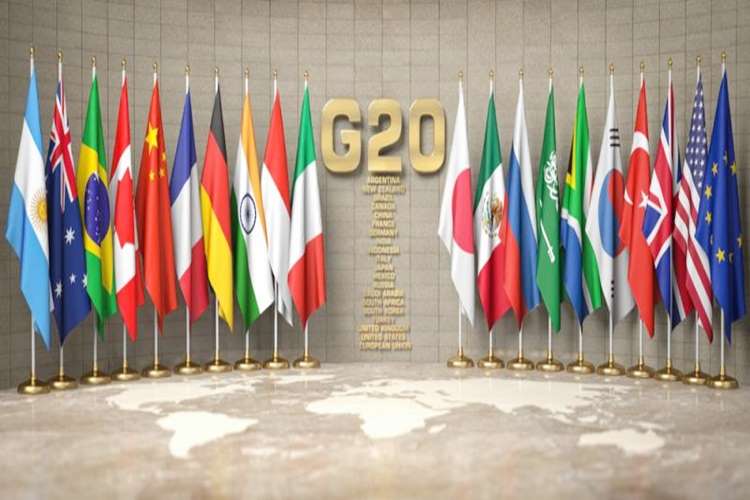
In an increasingly fragmented world, one has to look for regional formations as the building blocks of reinforced multilateralism. Association of Southeast Asian Nations is one such regional formation. This year three ASEAN countries held leadership positions in significant regional and international institutions — Indonesia as the president of G20, Thailand as the host of the Asia-Pacific Economic Cooperation, and Cambodia as the chair of ASEAN and the East Asia Summit.
To understand how these countries navigate in such a complex geopolitical world order, the Perth USAsia Centre, a leading Australian think tank, recently organised a webinar on Defending Multilateralism in 2022. With an all-women panel of distinguished speakers, the webinar reviewed the challenges faced by the three nations and examined what the future of multilateralism looks like.
READ I Ease of doing business: World Bank’s revamped index will also put onus on govts
Indonesia’s G20 leadership
With the upcoming G20 Summit in Bali, Indonesia’s role in resurrecting global multilateral institutions has been in the spotlight. As the president of G20, Indonesia’s vision is to steer the global economy on the path of recovery from the pandemic. In spite of this aspiration, stabilising the economy will prove to be a big challenge for low-income countries, because of inherent and structural weaknesses. In particular, the Micro, Small and Medium Enterprises (MSMEs) sector in low-income countries are the largest source of jobs, and they are caught in an economic downturn.
Throughout its presidency, Indonesia has also focused on how it could benefit from the Summit and progress its national interest and advance its MSME sector. Furthermore, their goals are also specifically in terms of deepening partnership and international cooperation, along with soft power. As a result of their efforts, Indonesia is on track to secure a multi-billion-dollar agreement for Clean Energy partnerships with rich countries.
A crucial point that the speakers highlighted during the Perth webinar was about how the global issues we deal with today are interconnected and affect each other. Thus, they need to be discussed in the same context and resolved accordingly. For instance, the interrelationship between climate change and food security is well established.
Furthermore, countries must develop a long-term strategy for multiple large-scale externalities and ensure domestic policies can find solutions to interdependent issues. Polylateralism, through the involvement of multiple stakeholders including civil society organisations, will prove critical in this process.
READ I COP27: Urgent need to focus on health impact of climate change
Thailand: Caught in the web of geopolitics
Geopolitics has intruded and caused many quakes this year. In a world being defined by geopolitical angst, Thailand aims to accelerate economic rehabilitation, sustainable models and inclusivity, to protect and empower people. As the host of the APEC for 2022, Thailand’s motto was ‘Open, Connect and Balance’. APEC’s main priorities are: trade and investment, finance, tourism, agriculture, forestry, women empowerment, MSMEs and health.
APEC being a non-binding platform can be its strength, especially on economic issues. Member economies are working on measures to improve resilience and advance environmental sustainability, using methods like the bio-circular-green (BCG) economic model. In fact, Thailand has been commended for promoting the BCG Model, which has helped its image as a soft power.
APEC has a diverse membership and represents 60% of the world’s GDP. However, Thailand faces a difficult test because all nations are split as a result of geopolitical rivalry between a select few. APEC has been criticised over the politicised economic cooperation in the wake of the Sino-American divide.
Moreover, the Ukraine-Russia conflict had a ripple effect on food, energy and commodity prices. While the members came together to help Ukraine in times of crisis, this event has heightened tensions as countries question each other about doing or not doing business with Russia.
Cambodia: Untangling internal knots
With the ongoing ASEAN Summit (10-13 November), Cambodia has directed all its attention on reviewing the ASEAN community, reaffirming ASEAN centrality, deepening growth and enhancing ASEAN values of mutual respect and inclusiveness.
No international political crisis can be solved in a day. They depend on the political will of major powers. Unexpected coalitions can emerge in times of crisis, and the parties involved may have different motives for how much they focus on international politics. As such, it becomes important to question the leadership on the ground. But the toughest job falls in the lap of the country that has the responsibility to lead all other nations out of such a conundrum.
ASEAN is facing many internal challenges along with externalities. As the chair, Cambodia had three main challenges to address: (i) the Myanmar crisis, (ii) the South China Sea disputes and Code of Conduct negotiations, and (iii) the Covid-19 pandemic.
While Myanmar’s membership is becoming increasingly contentious, the ongoing negotiations on the South China Sea have progressed well. Member states aim to ensure that the mistakes of the past ten years should not be repeated. On the front of pandemic recovery, ASEAN states will need to be more proactive since the labour force, especially migrant workers are still suffering the impacts of the Covid-19 pandemic.
Minilateralism, a manifestation of fragmentation, is another obstacle that challenges multilateralism in ASEAN. Although it has been effective in a few instances, it does more harm than good as it has divided the nations and broken the region. Thus, it is not a sustainable solution.
IPEF: A vision or framework?
Biden administration’s new trade arm, the Indo-Pacific Economic Framework (IPEF), is one of the main points of deliberation in any geopolitical discussion today. IPEF, a non-binding trade agreement, does not offer any access to American markets. Nonetheless, as a step towards the US re-engaging with regions economically, parts of it has been positively welcomed by most countries. For instance, the women’s digital skill training programme under this framework is an excellent initiative towards women’s empowerment and up-skilling.
IPEF’s Achilles heel lies in its effect on the Sino-US rivalry, and this remains the main area for concern. China is already a key trade partner of all IPEF member states, including India. Thus, IPEF must avoid the risk of making ASEAN and other member countries choose sides in any future negotiations.
A hopeful future
The war in Ukraine has fractured a multi-polarised world, while extreme weather has displaced populations. People’s trust in institutions that are supposed to protect them has wavered. Currently, the major powers are acting based on the worst possible scenarios which have resulted in a lot of mistrust among nations. As a spill-over effect, this has increased tensions and resulted in a lot of mistrust among nations. Consequently, multilateralism is fading.
This is particularly alarming considering that the escalating transnational challenges faced by the current world order demand greater cooperation than ever before. It is clear that the global set of rules and institutions for actions are absolutely indispensable. Embracing them also instils a positive hope for the future considering that having the current rules in place is better than having no rules at all.
(Pradeep S Mehta is Secretary General and Komal Gupta is research assistant, CUTS International, a global public policy think- and action-tank on trade, regulation and governance.)
Pradeep S Mehta is the Secretary General of CUTS International, a leading policy research and advocacy group. He is a featured columnist with several leading publications in the country.

